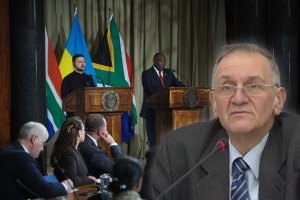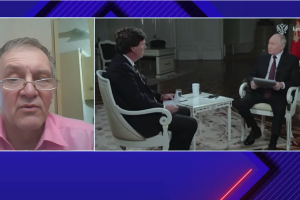Resignation of a NAPC member: preparation for the agency collapse?
On June 9, member of the National Agency for the Prevention of Corruption (NAPC) Ruslan Riaboshapka tendered his resignation from his post. When the Cabinet of Ministers accepts his resignation, only three members will remain in the composite of the NAPC – the minimum number required for the agency to continue performing its functions.
Riaboshapka’s decision to tender his resignation cannot be considered totally unexpected. Practically over the entire period of existence of the NAPC he got into public conflicts with the head of this body Natalia Korchak, accusing her of poor management and circumventing legislation. Moreover, of late members of the NAPC during important voting were often split in half: Korchak was supported by Oleksandr Skopych, while the agency’s fourth member Ruslan Radetskyi voted in tandem with Riaboshapka.
The real reasons for the constant conflicts inside the NAPC are ambiguous. While some accused members of the NAPC of the inability to hold back their ambitions and organize teamwork, others suspected them of intentionally disrupting the work of the agency. In any case, over recent times the NAPC indeed demonstrated practically no progress in important areas of its work. For instance, it failed to approve results of the analysis of electronic declarations of high-standing government officials, including that of Premier Volodymyr Groysman. Similarly, the NAPC was unable to register the fact of criminal offence in the actions of the Batkivshchyna party, which according to joint investigations of this body and the Chesno civic movement, falsified monetary contributions to its benefit.
After Riaboshapka officially leaves his post, the work of the NAPC may become even more complicated given that the approval of any of its decisions will require the unanimous support of all three members that remain in the agency’s composite. In order to rectify the situation, there are at least two ways. Firstly, the Cabinet of Ministers can initiate the renewal of work of the competition commission so it selects another two members of the NAPC. The risk of this scenario lies in the attempts of the government to control the selection process to ensure the appointment of loyal members of the anti-corruption agency.
Another way is to make legislative changes, which will pave the way for the dismissal of all NAPC members and a full revamping of this body by holding a new competition. The corresponding bill drafted by the government has already been registered with the Verkhovna Rada. However, its approval may have similar negative consequences as it gives the Cabinet of Ministers the right at its own discretion to appoint the acting head of the NAPC prior to the election of its new members and greater freedom in the selecting future members of the agency. The bill registered by the group of people’s deputies headed by Viktor Chumak can guarantee the new members of the NAPC greater independence, but the prospects of the bill’s approval by the parliament are not high enough considering the opposition credentials of its drafters.
The current situation with the NAPC clearly suits both the government and the president as it gives them the ability to blame the absence of notable results in the review of electronic declarations of officials and party reports on the internal problems of the agency itself. However, without electing its remaining two members or full revamping through holding of a transparent competition the degree of dissatisfaction of society with the absence of punishment of the most odious corrupted officials will only rise.








